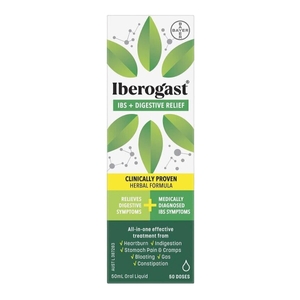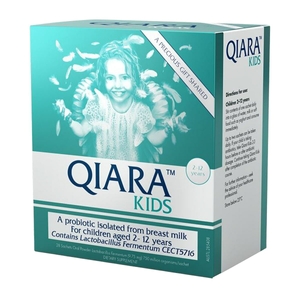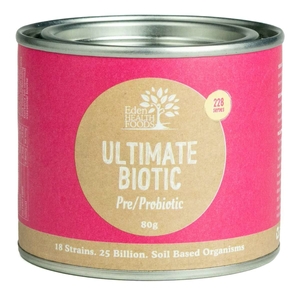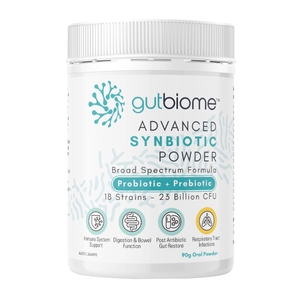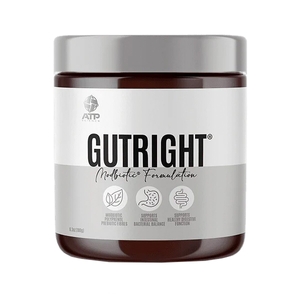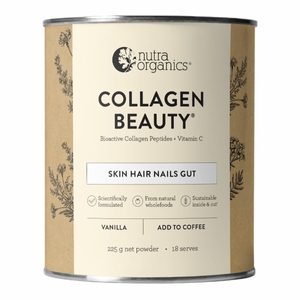
Good gut health is essential for overall health and well-being, with good dietary habits providing the foundation. Probiotics and prebiotics, as well as other foods and supplements, can play an important role in supporting a well-functioning digestive system.
Poor gut health can lead to a range of issues, such as digestive problems, nutrient deficiencies, and even mental health problems. Symptoms of poor gut health include diarrhoea, constipation, bloating, nausea, vomiting and stomach pain.
Below we cover why a balanced gut microbiome is important, and discuss the importance of probiotics, prebiotics and other types of supplements for various gut-related conditions.
Microbiome
The gut microbiome is a group of bacteria and other microorganisms that live in your digestive system.
One of the critical factors influencing gut health is the balance between the good and bad bacteria in your gut microbiome. The gut microbiome balance is essential for proper digestion and absorption of nutrients and a healthy immune system.
An imbalance in the gut microbiome, also known as dysbiosis, can cause long-lasting effects and health disorders, including irritable bowel syndrome (IBS), inflammatory bowel disease (IBD), diabetes, obesity, cancer and heart disease (1,2).
Many factors may contribute to dysbiosis: increased protein, sugar or food additives intake; alcohol; drugs (including antibiotics) and environmental toxins; lack of exercise; infections; poor hygiene; stress; or anxiety (3).
Restoring balance in the gut microbiome can help to reduce inflammation, improve digestion, and help to replenish essential vitamins and minerals.
What are the gut health benefits of probiotics?
Probiotics are beneficial bacteria that help to keep the balance between good and bad gut bacteria in check. Good bacteria in your digestive tract help protect you from infections from harmful bacteria and fungi.
Probiotics are one of the most popular supplements for gut health for improving digestion and reducing inflammation and the risk of infection.
Probiotic products may contain one or more selected strains (or species) of bacteria. Health benefits are generally strain-specific. In other words, you need to know which strain to take to treat a specific condition. However, certain health benefits are common to most or all probiotic species. These “core benefits” of probiotics include (4,5,6):
- Regulating how quickly food moves through your intestines.
- Restoring the balance of bacteria in your gut.
- Replacing worn-down cells.
- Stopping harmful bacteria from taking over.
- Helping your body make substances that can help protect against disease.
In children, the best-documented efficacy of certain probiotics is for treating infectious gastroenteritis and preventing antibiotic-Clostridioides difficile- and healthcare-associated diarrhoea
If you want to improve your gut health, consider adding probiotics to your diet or taking a supplement. It is important to choose a high-quality probiotic supplement and to follow the recommended dosage.
Some supplements and probiotics may contain additives or fillers that may not be safe for consumption, so it is important to choose a reputable brand.
Probiotic effectiveness can depend on the specific symptoms and the species, dose, and duration of supplementation (8). Naturopaths and nutritionists are trained in prescribing probiotics and can advise you on the best food sources or supplements needed for your situation.
Gut health benefits of prebiotics
Prebiotics are another type of supplement that can help to feed the good bacteria in the gut, allowing them to flourish, which can help to improve digestion, boost immunity, and reduce inflammation. In addition, prebiotics may be used as additional support for probiotics (i.e., a synbiotic).
Prebiotics are non-digestible dietary fibres that selectively promote the growth and/or activity of one or more beneficial microorganisms in the gut (9,10).
Prebiotics can help keep your digestive system balanced and working the way it should. They can help keep harmful bacteria away from your intestines and protect against colon cancer. They can also help reduce inflammation in your body and keep the acidity in your stomach at the right level. Prebiotics can also help with lactose intolerance (4,9,11,12,13).
Different types of prebiotics are used for various gut issues. For example, inulin and lactulose for IBD, galactooligosaccharides (GOS) and fructooligosaccharides (FOS) for regulating diarrhoea and constipation and general gut health in infants, GOS and inulin for traveller’s diarrhoea and IBS, and inulin for constipation (14,15).
The optimal dose of prebiotics to avoid significant side effects, such as bloating, is 15g per day (16).
Other supplements for gut health
In addition to probiotics and prebiotics, other supplements can be beneficial for your gut health.
- Fibre supplements provide bulk to the digestive system and help to keep things moving smoothly.
- Omega-3 fatty acids, such as those found in fish oil, can help to reduce inflammation in the gut and improve digestion.
- Ginger is beneficial for the treatment of functional and chronic gastrointestinal (GI) disorders, such as functional dyspepsia (a kind of chronic indigestion) and IBS (17,18,19). It stimulates gastric secretion, relaxes and calms stomach muscles, soothes the stomach lining, helps with constipation, and reduces inflammation (17).
- Polyphenols are substances found in many food such as green tea, turmeric, fruits, and vegetables. They interact with the microbiome, influencing dysbiosis and GI tract barrier permeability. They could help prevent and manage IBS (20,21).
- Glutamine, the most abundant amino acid in the body, is essential for many bodily functions, including helping to repair the intestinal lining (22). In the bowel, glutamine regulates cell growth, maintains protein levels, prevents inflammation and prevents cell stress and cell death (23).
Vitamins help to break down food, absorb nutrients, and keep the digestive system functioning correctly (24,25,26).
- Vitamins such as vitamin A, C, D and E have a modulatory effect on the microbiome (25,26,27,28).
- Vitamin A is important for the health of the mucous membranes in the digestive tract, which help to protect against infections (29). Deficiency results in intestinal inflammation, compromised mucosal barrier function, and gut microbiome disruption (30).
- Vitamin E can regulate the gut microbiome. It does this by affecting the bacteria directly or indirectly, affecting the immune system or how the bacteria reproduce (2).
- Vitamin D is thought to influence intestinal immunity by direct action on the immune system or indirectly via the gut microbiome (3,25,31).
Supplements and irritable bowel syndrome (IBS)
IBS is a chronic, often debilitating, set of symptoms resulting from dysfunctions of the gut-brain axis (32). GI symptoms include recurrent abdominal pain, disordered defecation (abnormal stool form, stool frequency, or both) and bloating (33). IBS is associated with changes in the gut microbiome (34,35,36,37,38,39).
There is no one-size-fits-all solution to supplements for IBS. The best approach may vary depending on the person and type of IBS symptoms. Some general tips on supplements for IBS include:
- Probiotics, specifically Bifidobacteria, can help promote a healthy gut microbiome and may improve abdominal pain in IBS (40). Different strains might work better for specific individuals (41). Consider starting probiotics when symptoms start and continue as needed for persistent symptoms (8). Taking a combination probiotic for up to 12 weeks is reasonable, but discontinue treatment if symptoms do not improve (42).
- Magnesium promotes muscle relaxation and may help relieve constipation and abdominal pain.
- Peppermint oil may help relieve abdominal pain, bloating, and diarrhoea (43,44,45). Peppermint oil is generally well tolerated at the recommended dose; however, higher doses might result in troubling side effects. Do not take peppermint oil if you suffer from hiatal hernia or gastro-oesophageal reflux disease (GORD) (43).
- Ginger is beneficial for treating IBS symptoms (16,17,18).
- Psyllium husks can help treat constipation in IBS (46); however, fibre supplementation may aggravate symptoms for some people with IBS (47). A total fibre intake of 20–30 g/day is recommended (48).
- Iberogast® (STW 5), a liquid formulation of nine herbs that act synergistically to ease functional GI ailments (43), reduces abdominal pain and general IBS symptoms (49,50).
- L-glutamine benefits intestinal health and may help people with IBS-D (diarrhoea type) following a GI infection (51). Glutamine supplementation may be beneficial when combined with dietary interventions for IBS (52).
- Digestive enzymes are proteins that regulate the chemical reactions in the body when breaking down fats, carbohydrates, and proteins from food. When dairy products trigger IBS symptoms, taking the digestive enzyme lactase before consuming dairy products increases a person’s tolerance to dairy (53).
In general, treatment targets the predominant symptoms of IBS; abdominal pain, diarrhoea, constipation or bloating (42). However, speaking with a healthcare professional is important before starting any treatment, as it may not be appropriate for everyone with IBS.
Which supplements can help relieve constipation?
Constipation is when a person has difficulty passing stools or has infrequent bowel movements. Fibre, magnesium, and probiotics are the most common supplements that can help with constipation.
- Fibre is a natural laxative that can help to soften stool and promote regularity. Insoluble fibre does not dissolve in water, and this helps food pass through the digestive system, promoting regular bowel movements.
- Magnesium is a mineral that helps to relax the muscles in the intestines, which can help to promote bowel movements. Magnesium also draws water into the intestine, bulking and softening the stool (54,55). However, too much magnesium can cause diarrhoea.
- Probiotics are effective for children and adults with constipation. You can try starting probiotics at the onset of symptoms and continue as symptoms persist (8).
- Vitamin D deficiency has been linked to constipation (56). We still do not know whether constipation causes low vitamin D levels or vice versa; nonetheless, correcting any vitamin D deficiency might help.
Probiotics for diarrhoea
Probiotics are effective for acute infectious diarrhoea, antibiotic-associated diarrhoea, and Clostridium difficile–associated diarrhoea (8,57).
To prevent traveller’s diarrhoea, start probiotic supplementation two days before travel and continue throughout the trip (8).
Supplements and gut permeability
Leaky gut syndrome, or intestinal hyperpermeability, is a medical condition where the lining of your intestines has become too permeable or “leaky”. This means that instead of only letting the nutrients your body needs pass through to the bloodstream, things like bacteria, toxins, and other substances can also pass through it.
Changes in the gut bacteria, lower levels of proteins that make a tight seal between the intestine and the rest of the body, and inflammation can cause the intestinal lining to become more permeable. This can result in the development of GI and non-GI diseases, including obesity and diabetes (3).
Symptoms of leaky gut syndrome include bloating, abdominal pain, diarrhoea, digestive issues, fatigue, and frequent food sensitivities. Supplements may be beneficial in preventing and managing leaky gut syndrome.
- Zinc helps promote healing and strengthens the gut lining, limiting gut permeability (58,59).
- Glutamine can help to rebuild and repair the intestinal lining (60).
- Collagen is an important protein found in almost every tissue of the body. Collagen peptides, a more easily digestible and bioavailable form of collagen, can help to prevent the breakdown of the intestinal lining (61).
- Fibre is essential for butyrate production, a short-chain fatty acid, which can stimulate mucus production and improve the gut lining (58,62).
- Curcumin, derived from turmeric, is a potent anti-inflammatory which can support the health of the intestinal lining (63). In addition, when combined with high doses of omega-3 polyunsaturated fatty acids, curcumin can restore intestinal barrier function (3).
Key takeaway
Taking steps to maintain good gut health, such as eating a balanced diet, avoiding processed foods, and taking appropriate supplements, can help your health and well-being.
Overall, supplements can be a great way to support good gut health. They can provide beneficial bacteria, promote gut microbiome balance, replenish essential vitamins and minerals, reduce inflammation, and improve digestion.
It’s important to speak with a healthcare provider before taking any supplements, as they may interact with medications or have other side effects.

